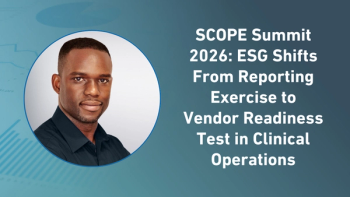
The Power of Automation
Becoming a preferred pharma partner for clinical trial sites.
In clinical trials, whether managed directly our outsourced, positive relationships with sites play an important role. But the complex logistics of clinical trial site management, from patient engagement to data monitoring, can make it challenging to build and sustain strong site relations.
Further, payment management has a significant impact on both the partnership and site activity. Managing complex invoicing processes, following up with sponsors on payment statuses or reconciling payments all take time that could be better spent recruiting patients, conducting research, and increasing the diversity of trial participants.
For clinical trial administrators who wish to improve site relationships, the following case study illuminates how automating technologies can help address challenges with payment management and ultimately improve operations overall.
Identifying the need to overcome site-payment challenges
Recently, after encountering challenges in its clinical trial site management processes and timeline, Bayer conducted a comprehensive review of its site management processes and identified site payment improvements as a focus area. In the US, Bayer identified opportunities to enhance payment efficiency, timeliness, and accuracy to strengthen its site relationships, enable better-informed decisions and contribute to its goal of becoming a preferred clinical trial site partner. Downstream, these site payment improvements targeted reducing administrative burdens for both Bayer and its clinical partners and improving study closeout.
We worked closely with Bayer to transform its clinical site invoicing and payment approach, prioritizing three key pain points:
- Reliance on manual processes: The current state process required manual—and often duplicative—effort to cross-reference site activities against the original contract and budget.
- Lack of transparency: Tracking and reporting invoice and payment statuses across multiple data sources caused additional difficulties in achieving payment accuracy and for the clinical sites to quickly reconcile their reimbursements.
- Inconsistency in timely payments: Overall, the additional time and effort required for the process left Bayer at risk for delayed payment statements. Further, payment statements themselves were often difficult for the clinical sites to understand.
Developing a site payment solution to streamline processes and lower costs
After an in‑depth examination of Bayer’s processes and an understanding of future state goals, the Automated Site Payments and Invoice Resolution (ASPIREs) program, an automated clinical site management platform, addressed Bayer’s challenges in multiple ways.
ASPIREs improved process efficiency, reducing inefficiencies in site management and for clinicians as well. Site satisfaction increased in the wake of timely, accurate payments and reduced payment disputes. Real-time reporting on invoicing and site payment statuses fostered transparency, while third-party services and payment analytics drove efficiencies through eliminating manual tasks and duplicative efforts.
Clinical trial sites experienced heightened confidence
ASPIREs enabled Bayer and its clinical trial site partners to experience an expedient, streamlined clinical trial process. Among improvements in the US, Bayer’s average cycle time for payment to site dropped from 75 days to fewer than 35 days. The company was able to easily make its payment dates and increase the satisfaction of physicians and clinical trial sites. By reducing the administrative burden of payment processes, Bayer was able to continue focusing on driving innovation.
An analysis of ASPIREs efficacy in the US showed significant impacts to clinical trial site relations:
- 75%+ reduction in number of payment-related questions and disputes
- 55%+ reduction in cycle time for payment to site (payment processing)
- 80%+ reduction in number of templates required for reporting and forecasting
- 90%+ reduction in monthly hours spent supporting payment processes per study, per resource
As Mark Ryan, Bayer’s US Head of Site Management, said, “Partners and patients can count on best practices being used in Bayer-sponsored studies.” Automation has driven clear efficiencies and cost savings for Bayer. Ultimately, it is a differentiator in the marketplace that improves Bayer’s customer service.
ASPIREs represents just one application of automated technologies to support clinical trial operations and improve site managements. As pharmaceutical companies, contract research organizations and other clinical trial managers strive to position themselves as preferred partners, they should consider how to leverage similar resources to lower costs and improve payment cycle times.
Ultimately, the goal of becoming a preferential partner means clinical trial sites can focus on what’s most important: driving access to cutting-edge therapies and revitalizing patient care.
Salman Shah is a Consulting Principal and the Health and Life Sciences, Research & Development (R&D) Lead at EY US
Newsletter
Stay current in clinical research with Applied Clinical Trials, providing expert insights, regulatory updates, and practical strategies for successful clinical trial design and execution.




